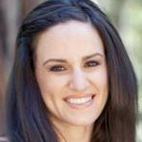The month of March is very special to the Department of Communication because it is Women’s History Month. We are lucky to have so many women faculty members that are constantly innovating the field of Communications and making history. Some of these amazing women have compiled words of wisdom to share with other women who are looking to be history makers themselves.
 Amanda Denes Ph.D.– AAmanda Denes is an Associate Professor and the Director of Graduate Studies in the Department of Communication. Her research focuses on communication in various types of interpersonal relationships such as romantic relationships, parent-child relationships, and friendships.
Amanda Denes Ph.D.– AAmanda Denes is an Associate Professor and the Director of Graduate Studies in the Department of Communication. Her research focuses on communication in various types of interpersonal relationships such as romantic relationships, parent-child relationships, and friendships.
“One piece of advice is to make sure you find time to take care of yourself. There are so many struggles that women face on a daily basis that can be emotionally and mentally draining, so looking out for our own mental health and well-being is pivotal. There is sometimes stigma around mental health issues, but it’s so important for women to have an outlet and place to discuss struggles. Part of our gendered society is that women are often taxed with managing other people’s problems, fixing everything for everyone, doing the unpaid emotional labor, etc… it’s important to take time for yourself, whether that be finding a great therapist, practicing yoga or meditation, going on a run, or taking time for any other forms of self-care. For me, part of this also means having a great network of female friends. I am so fortunate to have amazing women in my life that help provide support and empowerment–they have helped me through so many challenges and the ups and downs of building a career. Whatever way you choose, make sure to take time for yourself and to not feel guilty about engaging in self-care.”
 Shardè Davis Ph.D.– Dr. Shardé M. Davis is an Assistant Professor in the Department of Communication and a faculty affiliate of the Africana Studies Institute and the Institute for Collaboration on Health, Intervention, and Policy (InCHIP) at UConn. Her research explores how Black women’s complex identities—and the power-laden social structures that shape them—influence the way they communicate with close others.
Shardè Davis Ph.D.– Dr. Shardé M. Davis is an Assistant Professor in the Department of Communication and a faculty affiliate of the Africana Studies Institute and the Institute for Collaboration on Health, Intervention, and Policy (InCHIP) at UConn. Her research explores how Black women’s complex identities—and the power-laden social structures that shape them—influence the way they communicate with close others.
“My advice to other women is to give yourself some grace. U.S. Society has a way of making women (especially women of color) feel like we aren’t doing enough. We fall victim to the superwoman archetype and push ourselves beyond our physical, mental, and psychological capacities to be our “best self” in every situation and in the company of others. This lifestyle is not sustainable and research shows that it corresponds to maladaptive health outcomes. We need to tell ourselves that if we are trying our best then that is enough! Don’t compare yourself to other people, namely folks who have gender, racial, class, and other institutional privilege over you. It’s not a fair comparison and we will fall short every time. Focus your energy on being your best self based upon your own (reasonable) standard of excellence. We also need to listen to our bodies and take a break when we experience exhaustion and take a moment to respect our emotional process and expression. I study these topics for a living, yet I struggle to adhere to my own advice at times. So please know that our womanhood is an ever-evolving journey.”
 Anne Oeldorf-Hirsch Ph.D.– Anne Oeldorf-Hirsch is an Assistant Professor in the Department of Communication at University of Connecticut, where she conducts research in the Human-Computer Interaction lab. Her research interest is on the benefits of social media in terms of learning new information, civic engagement, and well-being.
Anne Oeldorf-Hirsch Ph.D.– Anne Oeldorf-Hirsch is an Assistant Professor in the Department of Communication at University of Connecticut, where she conducts research in the Human-Computer Interaction lab. Her research interest is on the benefits of social media in terms of learning new information, civic engagement, and well-being.
“Be honest with yourself about what you really want. Society puts strong pressure on all of us about what we should be striving for, and the pressure is even stronger for women. We have been put into prescribed paths for most of history about what it means to be a woman, what we should expect out of life, and what is expected of us. Expect things for yourself, and work to fulfill your true needs and desires.”